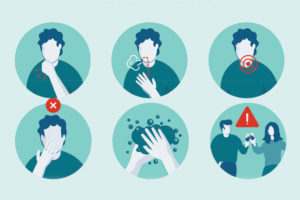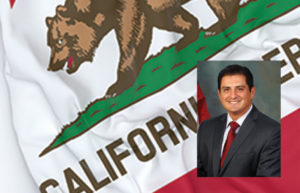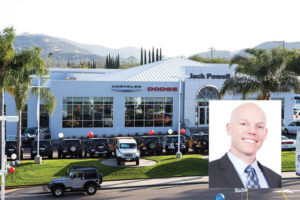Contributed by Scali Rassmusen | Scalirasmussen.com
The initial shock of the COVID-19 virus and the resulting shelter in place orders is beginning to wear off, and dealerships are asking themselves: what next? This article addresses the legal landscape for vehicle sales in San Diego County, what dealers must do now to operate their showrooms in a compliant manner, and how they can prepare for an uncertain future. The good news is that investments today in sound safety practices and legal compliance will pay dividends as prevention methods are likely to be our new normal.
Understanding the Legal Situation
On March 19, 2020, Governor Newsom issued Executive Order N-33-20 directing all residents to stay home and for businesses to cease on-site operation, except as needed to maintain continuity of operations of essential critical infrastructure sectors. The Order stated that these essential sectors included those designated by the Cybersecurity and Infrastructure Security Agency (“CISA”) of the Department of Homeland Security and additional sectors as the State Public Health Officer may designate as critical. Both CISA and the State Public Health Officer have always designated service and parts departments as essential sectors. However, neither CISA’s original designations nor the State Health Officer’s March 22 designations listed vehicle retail as an essential sector. Then on April 17, 2020, CISA designated personnel essential to sell and lease vehicles as essential critical infrastructure.
On May 7, 2020, Governor Newsom’s office released the Phase 2 guidance of the California Resilience Roadmap for “lower-risk workplaces” detailing the steps businesses in specific industries must take to reopen. This guidance became effective May 8, the same day when designated lower-risk workplaces could open across the state with modification. The auto dealer guidance includes some specific requirements, but largely shifts to dealers the burden of assessing risk and developing plans to mitigate risk.
San Diego County’s updated Order of the Health Officer dated June 18, 2020, requires that any business not meeting the definition of an essential business OR of a reopened business, defined as a business opening in compliance with the Governor’s Phase 2 guidance, remain closed, with exceptions for telecommuting. The prevention protocol requirements for essential businesses and reopened businesses differ to some degree. Because dealerships may legally qualify as essential businesses or as reopened businesses in San Diego County, dealers should understand both sets of rules and choose the prevention protocol that makes the most sense for their situation.
Selecting a Prevention Approach
Any dealership with an open showroom must comply with either the County’s Social Distancing and Sanitation Protocol for essential businesses or with the state’s Stage 2 reopening guidance. Both require similar prevention methods, though the state has released guidance for the auto dealer industry that is more tailored to dealerships. The major difference between the two is that businesses operating as essential businesses may only allow employees to work at the dealership if the employee is essential to selling, leasing or servicing vehicles, including selling parts. While most dealership employees qualify as essential, this distinction may be important for dealerships that would like business staff to return to work on site.
In addition, dealers should consider the likely time frame when selecting a compliance approach. While most dealerships at this point should be in compliance with the Social Distancing and Sanitation Protocol for the County, the Protocols are very general and inflexible. The Phase 2 reopening guidance is more flexible and tailored to the industry. Therefore, most dealerships may find that adopting the Phase 2 approach has the benefit of setting up a more sustainable prevention approach.
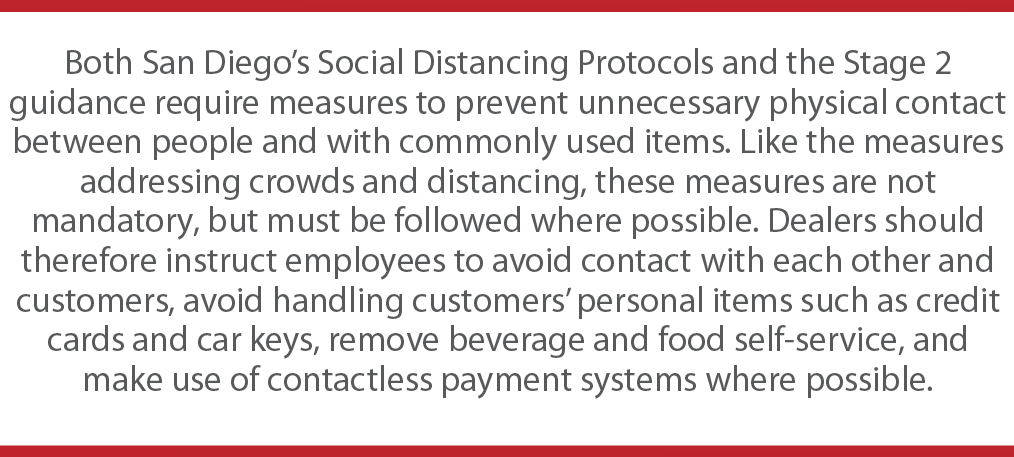
Prevention Approaches
No matter which legal approach dealerships take to operating under county health orders, they should adopt all mandatory measures discussed below and consider non-mandatory additional prevention measures to help limit liability.
Public Sign Posting
If the dealership is operating as an essential business, a copy of the Social Distancing Protocol must be completed and posted at every public entrance.
If the dealership is operating as a reopened business under Stage 2 guidance, the dealership must post a summary of its prevention plan, using the County’s Safe Reopening Plan form at each public entrance.
In addition, all dealerships must post a sign informing employees and the public about all of the following:
- They should avoid entering the facility if they have a fever or cough
- They should maintain a minimum of six-feet of distance from other people
- They should not shake hands or engage in unnecessary physical contact
Dealerships following the Stage 2 guidance must also post a sign stating that members of the public must wear a mask in the facility. However, the Governor issued a state wide face covering mandate in mid-June, so all dealerships should post and enforce this requirement now.
Measures to Protect Employee Health
All businesses must certify that they have informed all employees that 1) if they can carry out their duties at home they should do so and 2) that if they are sick they should not come to work. These requirements will likely stay in place for months even after the statewide shelter in place order is lifted, so dealerships should both evaluate which employees can perform their duties from home and be sure to understand health leave laws, both state and federal.
All businesses must also arrange workspaces, such as desks and service bays, so that they are separated by at least six feet. In sales and F&I departments, this should include arranging chairs and desks so that customers will be at least six feet away from employees. This requirement may be most difficult for service bays. If bays cannot be arranged to allow for this distance, dealerships should consider erecting barriers between service bays, such as clear Plexiglas.
Businesses must also implement a regular schedule for sanitizing common areas such as bathrooms and breakrooms. This schedule must be posted on the Social Distancing Protocol form, though it need not be specified on the Safe Reopening Plan.
Disinfectant cleaning supplies, hand sanitizer that is effective against COVID-19 (containing at least 60% alcohol) and soap and water must be made available to employees. The locations of the supplies must be listed on the Social Distancing Protocol form or Safe Reopening Plan.
Finally, all employees who work at the dealership must receive a copy of whichever prevention protocol the dealership is using. Dealers should require that the employees also sign a form acknowledging that the employee received and understood the prevention protocol.
Measures to Prevent Crowds from Gathering
San Diego’s Social Distancing Protocol requires measures to prevent crowds from forming in stores. These measures may only be ignored if they do not apply to a specific business. Dealers should therefore consider all of the following to have a fully compliant Protocol.
- Limit the number of customers in the store or in a section of the store, if applicable, so that customers and employees can maintain at least a six-foot distance from one another.
- Designate one or more employees to monitor entrances to ensure the limit of customers in the store is not exceeded.
- Keep some entrances locked to better monitor and control the number of customers in the store.
- Close waiting areas and children play areas.
The Stage 2 guidance has similar recommendations, though dealers have more flexibility in implementing these measures.
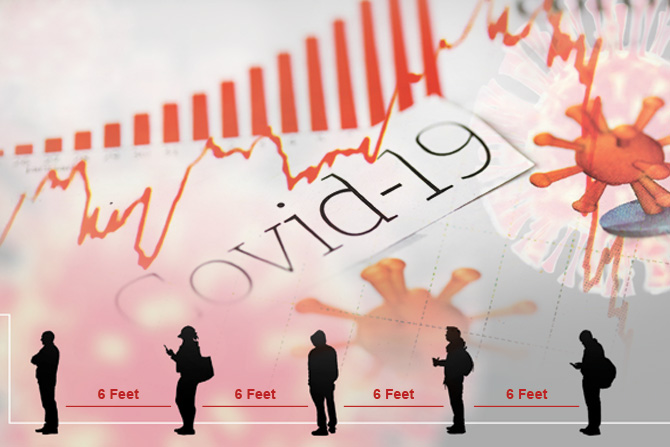
Measures to Keep People Six Feet Apart
Both San Diego’s Social Distancing Protocols and the Stage 2 guidance require measures to keep people six feet apart. These measures are also not mandatory, but may only be ignored if they are inapplicable. Therefore, if lines form in any part of the dealership, dealers should consider marking spaces six feet apart and direct customers to que up at the marked spots. Dealers should also consider erecting clear barriers at cash registers if six-feet of distance cannot be maintained during payment.
Measures to Prevent Unnecessary Contact
Both San Diego’s Social Distancing Protocols and the Stage 2 guidance require measures to prevent unnecessary physical contact between people and with commonly used items. Like the measures addressing crowds and distancing, these measures are not mandatory, but must be followed where possible. Dealers should therefore instruct employees to avoid contact with each other and customers, avoid handling customers’ personal items such as credit cards and car keys, remove beverage and food self-service, and make use of contactless payment systems where possible.
Measures to Increase Sanitation
Finally, both San Diego’s Social Distancing Protocols and the Stage 2 guidance require implementation of additional sanitation measures. While some of the “mandatory” measures, such as wiping down carts and shopping baskets, do not apply at dealerships, all dealerships should implement the following measures:
- Provide hand sanitizer, soap and water, or other effective disinfectant to the public at or near the entrances, at checkout counters, and at places of direct contact with people, such as service advisor desks, sales desks, and F&I desks.
- Disinfect all payment portals, clip boards, pens, styluses, car keys, and other items between uses.
- Sanitize desks and work surfaces between each customer
or employee. - Station an employee with disinfectant to wipe clean all door handles at entrances.
- Make tissues and trash receptacles available in all locations where people congregate.

Adopt Additional Social Distancing Practices
All dealers should consider adopting additional prevention measures, no matter which operating framework they adopt, to demonstrate seriousness to regulators and customers, as well as to limit liability for potential claims related to an employee or customer contracting COVID-19.
All dealers should adopt a face covering policy. Neither version of the current prevention protocols mandates this, but it is now a statewide mandate. The dealer must make face masks available to the employees. Dealers should also consider requesting that customers wear face masks while in the store and make face masks available to any customer.
In the service department, dealers should implement specific measures when handling customers’ vehicles. These include:
- Ensure the AC heater and fan is off in the vehicle at all times.
- Keep windows down for natural air circulation.
- Sanitize all touchpoints before and after working on the vehicle, including: door handles, keys, steering wheel, gear knobs, seats, and seat belts.
- If a surface inside the vehicle cannot be sanitized, cover the surface with paper or plastic while inside the vehicle.
- Minimize time inside the vehicle when possible.
- Service techs should wear personal protective gear while inside a vehicle, including a mask and gloves.
- Sanitize all vehicles returned by customers including test-drives, trade-ins, loaners, and rental cars.
- For loaner and rental vehicles, dealers should do the following:
- Prior to providing a customer with a loaner or rental vehicle, sanitize all touchpoints including: door handles, keys, steering wheel, gear knobs, seats, and seat belts.
- If a surface inside the vehicle cannot be sanitized prior to providing the vehicle to the customer, cover the surface with paper or plastic.
- After the customer returns the loaner or rental vehicle, sanitize all touchpoints including: door handles, keys, steering wheel, gear knobs, seats, and seat belts.
- In the sales department, dealers should also implement the following measures:
- Encourage customers to conduct as much of the vehicle purchase or lease process remotely as possible.
- Encourage customers to make appointments prior to arriving at the dealership.
- Discontinue test drives accompanied by a dealership employee. If your line-make supports extended test drives, offer those as
an alternative. - Offer off-site delivery of vehicles (please see off-site delivery guidance below).
Look to the Future
COVID-19 will continue to be a risk to the public for the foreseeable future. Dealerships should therefore prepare their showrooms by investing in sales and safety practices that will allow for social distancing over the coming months. Dealers are likely to find that local or state laws continue to mandate the kinds of social distancing protocols described above, and that the public will expect such practices. In addition, customers may expect expanded options for remote vehicle purchases and leases.
California law allows offsite contract execution and vehicle delivery. However, there are special legal hurdles to conducting a remote sale or delivery of a vehicle offsite. Dealers should therefore be sure to consult with competent counsel prior to implementing wide-scale offsite delivery, and make sure they are addressing the following issues:
- Conduct all sales and negotiations for the vehicle, lending terms, and ancillary products at the dealership, over the phone, or over the internet. Only licensed salespeople may engage in vehicle sales and negotiations. No sales activity should take place at the customer’s residence, workplace, or other location that is not the licensed dealership.
- Ensure that all legally mandated disclosures, such as the GLB Notice and CCPA Privacy Notice, are provided to the customer at the correct time.
- Be wary of the potential that remote sales and offsite delivery can lead to increased identity theft. Dealers should complete additional Red Flags checks to help prevent fraud.
- Train staff to conduct deliveries in a legally compliant and safe manner, including following social distancing protocols, avoiding any sales activity, and ensuring correct execution of all legally required documents.
Contributed by Scali Rassmusen | Scalirasmussen.com
Recognized as California’s top boutique automotive law firm, their automotive industry clients include: franchised dealership groups, independent auto dealerships, auto dealer associations, automotive internet marketing companies, automotive advertising agencies, finance companies & providers of after-market automotive products and services.
This story appears in Issue 3 2019-2020 of the San Diego Dealer Magazine.


